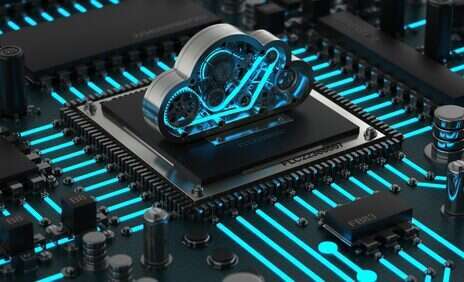At first blush, IBM Corp’s deal with Cyrix Corp, which allows IBM to make as many Cx486 and M1 parts for its own use – to keep or to sell on the merchant market – as it makes for Cyrix (CI No 2,395), is a splendid checkmate for Intel Corp and a wonderful opportunistic coup. But the more closely the likely consequences are examined, the more it looks as if IBM could end up a net loser from the initiative. For the 20 years of its heyday in the computer industry, IBM routinely made extravagant gestures without ever taking into account the fact that like an elephant rolling over, it would crush a whole string of tiny companies to which it bore no ill-will, were not the intended target of its move, and indeed had not even been considered when the decision was made. But the environment in which IBM now operates is utterly changed, and today when the elephant rolls over, far from crushing a few nests of mice, it is as likely to find that it has rolled into a peat bog from which it may only be disinterred many centuries hence as nothing more than a fossilised curiosity.
Gestation
Intel Corp’s gross margins on 80486 and Pentium parts are gross, and IBM’s move will only energise Intel to cut prices even faster than it had intended, obsolete the 80486 even sooner, turn the Pentium into a commodity part even quicker and turn the P6 from a dream into the chip that is at the top of every user’s wish list. There is no question that Intel can afford to do this: the only question is whether the P6 will have a trouble-free, on-time gestation. The effect of this drastic price-cutting has to be a new price war in the personal computer market. Who will be the losers in such a price war? The weakest among the Zeos International Ltds and Zenith Data Systems of this world. IBM still behaves as if driving weaker personal computer manufacturers out of the market benefits its own personal computer business, but these days, there is a whole string of new personal computer manufacturers that are getting stronger and stronger. And they don’t have names like Northgate and Everex: they have blue chip names – Digital Equipment Corp, Hewlett-Packard Co. Compaq Computer Corp has long been a permanent fixture in the personal computer market, Dell Computer Corp is well on its way to the same status, and upstarts like Acer Group Inc are far stronger than their predecessors and are definitely not going to be knocked out of the market by a price war. If an IBM-triggered price war kills off Tulip Computers NV or Vobis Computer AG, the gap is as likely to be filled by DEC and Acer as it is by IBM. It is doubtful that IBM will ever get volumes up enough to make the Cx486 and M1 chips much cheaper than it can buy them from Intel, and a further factor that will soon be ratcheting prices down further is the fact that DEC is gearing up to make Advanced Micro Devices Inc Am486 parts. IBM has been getting its cost structure down, but as long as the IBM corporate overhead hangs over the IBM Power Personal Co, it will never be the low-cost manufacturer in the business, however successful it is in paring costs from the actual personal computer operation.
Commodity-like
Which is why John Akers was talking good sense when he said that if the personal computer business became conclusively commodity-like, we probably wouldn’t see the IBM company in it. As a stand-alone operation, IBM Personal Computer Co would probably be making reasonable profits now: as part of IBM, it is questionable whether it ever can, and a new round of heavy price cuts will simply make life for the Personal Computer Co even tougher. IBM does also have another important objective, one to which it has assigned a very high priority, which is to get the PowerPC established as a serious rival architecture to iAPX-86. But a new price war in the personal computer market will not only make it harder for Apple Computer Inc to make big advances with its PowerPC-based Macintoshes, it will also leave IBM with even less leeway to make IBM’s own forthcoming PowerPC-based personal computers attractive enough in
price, performance and functionality terms to overcome the crucial handicap of being incompatible with anything currently out there in the market. The uncomfortable challenge facing IBM’s Power Personal Systems division is that it won’t be enough simply to offer lots of exciting add-ons such as bundled sound and video in machines that are the same price as Pentium machines of the same power and we’re talking about a price point of $2,000 here after the price crunch gets under way, not the $3,000 IBM has been pitching for. As Apple has wisely recognised with the pricing on its Power Macintoshes, IBM’s machines will have to offer all the goodies absent from the Pentium machines and be cheaper in order get the mainstream user to bite. Otherwise IBM’s Power Personal Systems division will have on its hands a machine as successful as the Commodore International Ltd Amiga – and last time we looked, trading in Commodore shares was suspended by the New York Stock Exchange. So who will be the out-and-out winners from IBM’s opportunistic coup? Microsoft Corp, of course: the more iAPX-86-compatible chips there are out there, the more operating systems Microsoft sells.
Very angry
Intel, although it won’t see it that way, because the iAPX-86 standard, of which Intel remains the keeper, will be even more dominant in the market, even if Intel does end up taking a slightly smaller proportion of a much larger market. Cyrix, which overnight is rocketed into the big league without even having its own chip fabrication plant. And all manufacturers that are already strong in iAPX-86-based personal computers, because they know that however much money IBM’s Personal Computer Co makes, they will always be able to make more money. And the most visible and embarrassing loser has to be the PowerPC chip, since the odds against it succeeding in its objective of competing head to head with iAPX-86 and being accepted as a genuine alternative have been lengthened substantially. And there must be some very angry people in Schaumberg, Illinois who must even now be wondering whether it’s time to throw in the towel and strike a deal with one or other of the growing band of iAPX-86 clone-designers, adding Motorola Inc to the lengthening list of companies making chips to the Intel standard.





